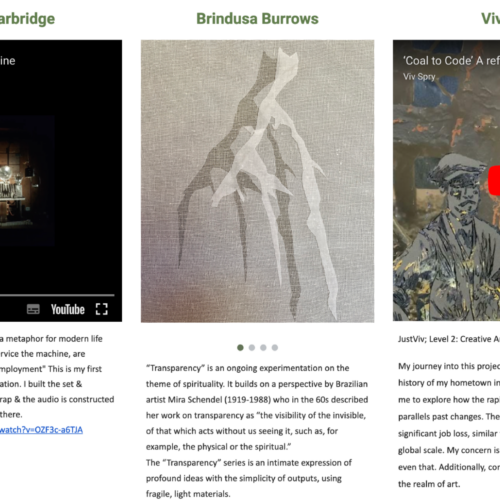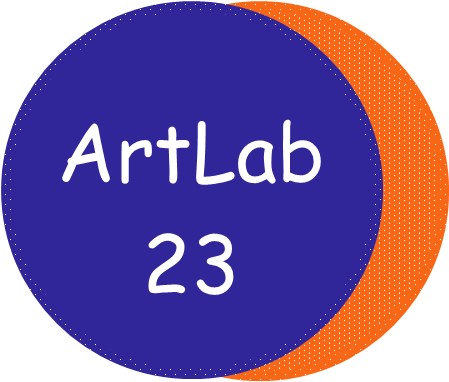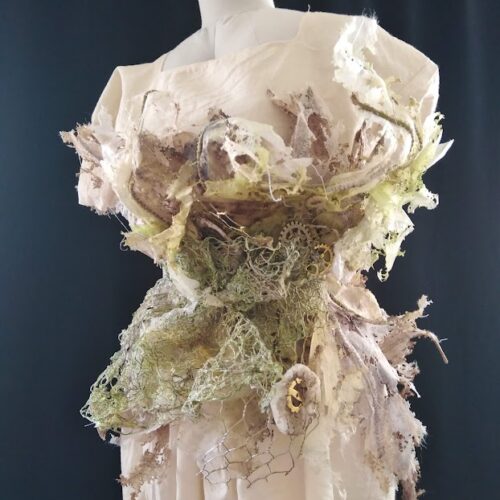
Difficulty and accessibility

I recently went to an exhibition of street photography from Sheffield Museums Archives in the Graves Art Gallery. I came away feeling thoroughly stimulated and working out how I might use some of these photos, set partly in Sheffield but also across the world’s streets, as a way into writing poetry. There were many names I had never heard of and others who have haunted my memories of photographs over the years, like Andre Kertesz, Henri Cartier Bresson, Paul Nash.
As I left the exhibition I passed an advert screen headed Mindfulness suggesting viewers should attend evening sessions to find out how art can “calm body and mind.” What! I want art, whether it’s visual or written to stimulate body and mind, not calm it. Sounds more like Classic FM with its smooth classical music. Let’s have accessibility by all means but only after we’ve worked through the difficulties and earned our access. And let’s go away from our viewings and readings still feeling concerned about meanings, context, genre and style, wanting to see more, read more, research more.
If texts are hard to decipher we may give up, stop reading and not bother with them. On the other hand, if texts challenge us, we may come away feeling we have achieved something as a reader, made reading a possible re-writing of the original text. I’ve always found Geoffrey Hill’s poetry difficult, hard to work out his meanings on a first quick read, and I’ve been tempted and given in to simply saying “I don’t much like Geoffrey Hill.” But recently, I’ve read what he has had to say himself about writing.

“The word accessible is fine in its place; that is to say, public toilets should be accessible to people in wheelchairs; but a word that is perfectly in its place in civics or civic arts is entirely out of place, I think, in a wider discussion of the arts,” Hill said in an interview in The Guardian in 2002.
Hill pointed out that difficulty is democratic because it supposes that ordinary people can read and understand difficult texts. He has also said:
“We are difficult. Human beings are difficult. We’re difficult to ourselves, we’re difficult to each other. And we are mysteries to ourselves, we are mysteries to each other. One encounters in any ordinary day far more real difficulty than one confronts in the most ‘intellectual’ piece of work. Why is it believed that poetry, prose, painting, music should be less than we are? Why doesn’t music, why does poetry have to address in simplified terms, when if such simplification were applied to a description of our own inner selves we would find it demeaning? I think art has a right—not an obligation—to be difficult if it wishes.”
(quoted in: https://www.poetryfoundation.org/poems-and-poets/poets/detail/geoffrey-hill)
But it’s not only in poetry that difficulty appears as an issue for readers: it also appears in fiction. Will Self wrote with reference to fiction: “The hallmark of our contemporary culture is an active resistance to difficulty in all its aesthetic manifestations, accompanied by a sense of grievance that conflates it with political elitism.”
Maybe we no longer want to read Henry James’ long sentences or James Joyce’s puzzling structures and prose or even Jane Austen’s turn of phrase – we’d rather just watch on TV. But are we willing to look at new experiments in structure and language like Arundhati Roy’s The God of Small Things (Random House 1997) or Eimear McBride’s mixed up sentences in A Girl is a Half-formed Thing (Faber 2014)
Amit Chaudury, writing in The Guardian on difficulty in prose and poetry (prompted it seems by the death of Geoffrey Hill in July 2016), claims that one marker of recent attempts to make prose style less difficult, is the elimination of the semi-colon, though he detects it may now be returning. He sees Virginia Woolf’s complicated use of punctuation in To the Lighthouse as her way of writing complicated ideas about her characters. By contrast, difficult poetry is signalled more by the nature of the thoughts themselves as expressed in complicated language. This is what makes Geoffrey Hill’s poems difficult to read. And I suspect what puts me off as well, is that when I can make sense of what he is saying, I don’t like it anyway because it’s too philosophical and Hill’s philosophy is based in the religious and spiritual. Strangely, Chaudury thinks TV is now the writing site where difficulty is more likely to be encountered. (And I used to think that TV is for people who are too lazy to read books. I know better now.)

All the above instances refer to difficulty as encountered by readers. However, at the OCA we may be readers a lot of the time, but on Creative Writing courses students will be judged and assessed largely on their writing. I don’t suppose any students, whether writing prose, script or poetry, set out to produce writing that their readers will find difficult, but it may happen. In that case, should tutors advise students to write in a way that their readers will find more accessible? I reckon that’s a dangerous question. It makes me think of Harold Pinter’s plays where I’ve often been confused at a first performance or reading. And of course Pinter always answered people who asked for an explanation of what his plays meant with a refusal to explain because the play itself was the explanation. Or parallel to that Eliot’s dictum that “the meaning of a poem to a particular reader is whatever satisfies that reader the most.”
The viewpoints of poets themselves have been collected in Strong Words (ed. W.N. Herbert, Bloodaxe 2000). In his introduction, Herbert quotes James Fenton: “When you’re actually engaged in the process of writing, you must always be writing into the dark.” I suppose negotiating the dark is always difficult.
Maybe we all have to have the courage to be brave in our writing and brave in our reading.
Images: Street View: Photographs of Urban Life, Grave Gallery Sheffield
Andrew Yee, Flickr
Linus Eklund, Flickr






What an interesting post, Liz. I think you say it all when you quote Hill – “we are difficult. Human beings are difficult … etc.” Absolutely. As more and more things are made easy – communications for instance – in the First World, where will artists and writers get their stimulation from? When Picasso painted Guernica it must have been difficult and painful processing those emotions. I think we get growth from difficulty in the way that our long bones produce new growth because of the friction where they connect with each other. No stress, no growth.
What an interesting and thought-provoking post, Liz. There’s a fine line though. I agree we should not bow to the pressure to keep everything simple and unchallenging, but sometimes clarity is important too. For example, I think that under the obfuscating language, there’s not a lot to Will Self apart from Will Self. An endless debate! Hope you get lots of responses.
An excellent post – thank you
There is a lot to think about here & I may be writing out of turn because who we write for is an important consideration. When we write for assessors in critical essays, for example, we are told to write clearly, to lead them because they do not have time to plough through essays. As students, not of creative writing, but students who have to show their analytical skills, for example, we are not allowed to be enigmatic or write things which our readers will find difficult. Even our layout and fonts influence how our work is received & we have to optimise those too. I suppose you are writing about writers of fiction writing for readers who have the luxury of investing time in their reading.
That’s a very good point, annag1611. It does depend on who your audience is. I wrote the post above as a would be writer and not as a student hoping to achieve a degree.
I am getting used to having to write with one of many hats on, as it were. My last completed course was Scriptwriting 1, and I took risks which were encouraged and appreciated by my tutor, but not so much by the assessors. I was disappointed but I took from that not to take such risks in future. Was i right or wrong? I would welcome other tutors’ comments on that. It’s clear what Liz thinks.
I suppose we have to be careful where we take risks, which, in a creative environment, is rather absurd.
Liz I would like to take issue with your comment about mindfulness! Mindfulness manifests in diverse ways these days from a clinical technique that has proved effective in relieving depression to all kinds of approaches some of which might result in suppressing the human condition rather than relieving it. Calming a little is actually what I tend to experience when, for instance, I enter a gallery and adjust to the atmosphere of that place. However, that calming is not an end rather a stepping stone into actually experiencing the energy of the art work on show which could be anything but calming. As you say, “I want art, whether it’s visual or written to stimulate body and mind, not calm it.” Calming could be considered as a kind of stimulation but one clearly does not want to be left “comfortably numb!”(to quote a Pink Floyd song) if this entails missing the work on show! Does this mean facing difficulty? I think if one encounters difficult work what is required is a moment or two to absorb it; this may not be calming but it does require a slight slowing down perhaps so that challenging material can be understood.
In reply to several comments, I would say that I was referring to creative writing, not critical writing. The latter needs to be straightforward and clear though there may be arguments that need reading more than once before they are fully understood. Creative writing, whether prose, poetry or script, can use symbolism and metaphor which may need several readings before the meaning is clear, and each reader may have their own interpretation.
As for mindfulness, I was making a point about alot of today”s culture being too easy, too light-hearted, too calming in the sense of stopping you thinking or worrying. I don’t object to moments of calm while you try to absorb whatever you are encountering.
calming as in “Don’t think just buy!!” … which of course is not really calming but a form of oppression common at this time of year!